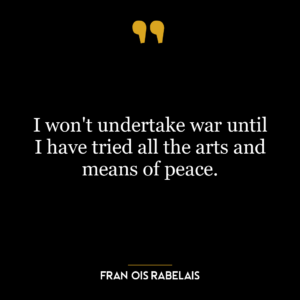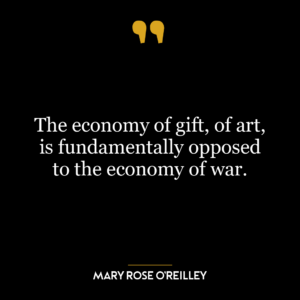This quote emphasizes that war, regardless of its justification or necessity, is fundamentally a crime. It suggests that war, by its very nature, involves acts that would be considered criminal in any other context – killing, destruction, and violation of human rights. Even when war is deemed necessary, for instance, in self-defense or to combat tyranny, it is still an act of violence and destruction that results in loss of lives and property. Justification does not erase the harm and suffering it inflicts.
The quote underscores the inherent contradiction in war. While societies have laws against violence and killing, they also sanction war in certain circumstances. This contradiction reflects the complex moral and ethical dilemmas that societies face when dealing with issues of war and peace.
In today’s world, this quote can be applied to the numerous conflicts and wars occurring globally. Despite the reasons nations may provide to justify these wars – be it fighting terrorism, protecting national interests, or defending human rights – they still result in widespread death, displacement, and suffering. This quote reminds us to question the necessity and justification for war, and to always consider the human cost involved.
On a personal development level, this quote can inspire introspection about our own actions and their impact on others. It encourages us to question whether the ends truly justify the means, especially when harm is caused. We may think our actions are necessary or justified due to our circumstances, but we should also consider their ethical implications. The quote can serve as a reminder to strive for peaceful resolutions and to avoid causing harm whenever possible.









